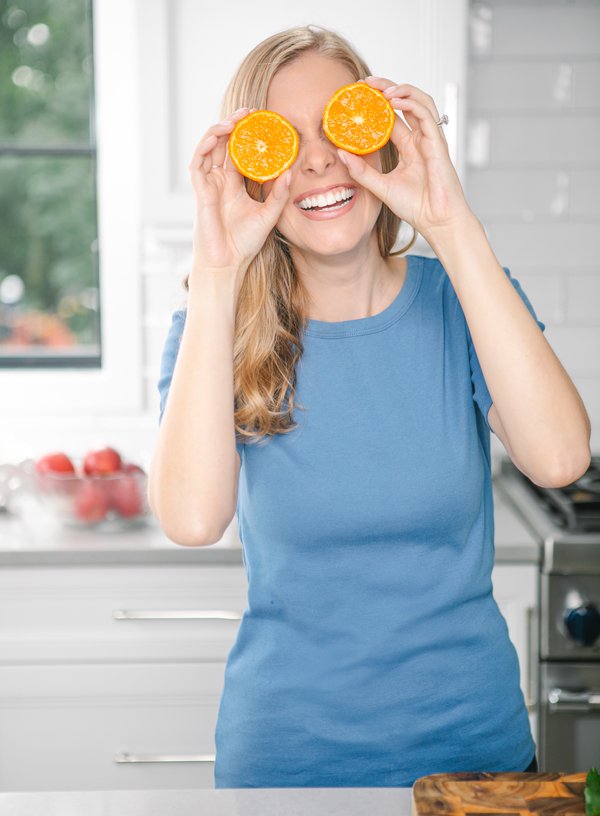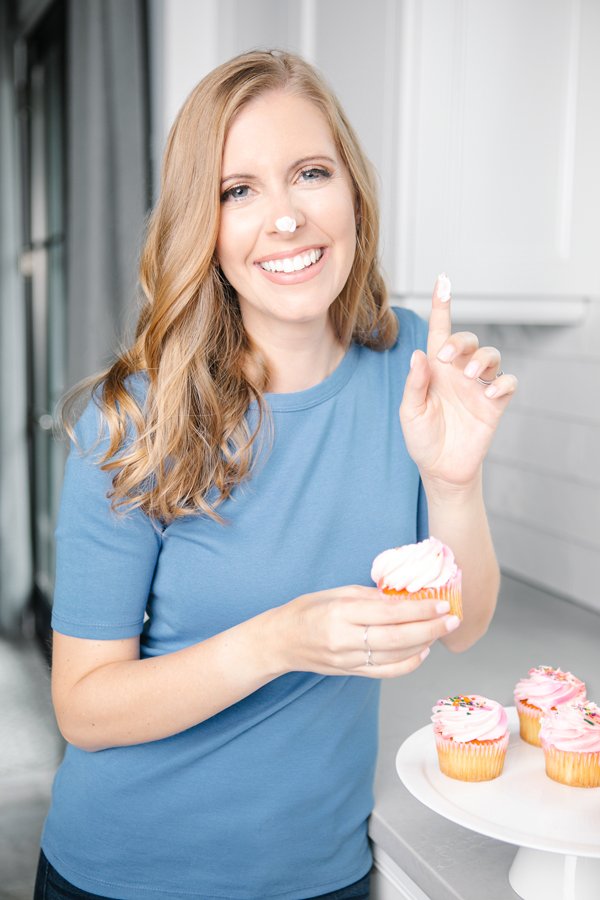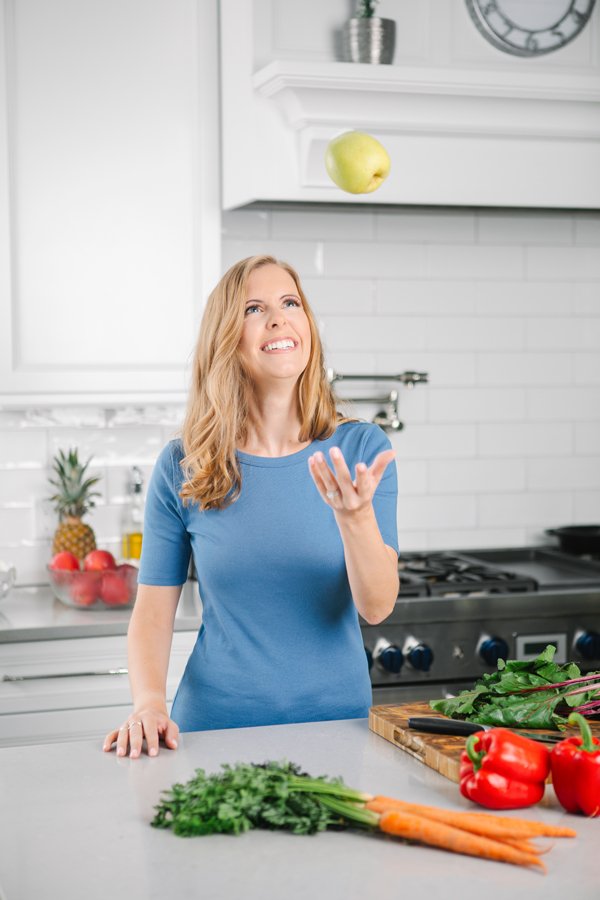Client Spotlight: Stacey Simon
One of the reasons I love being a personal branding photographer is that I get to meet and work with so many amazing female entrepreneurs from so many different fields. I love to pick their brains about their industry and always learn something new. My recent client, Stacey Simon, is a Registered Dietitian- Nutritionist and is one of the kindest, warmest and inspiring people I have ever met. During our interview she shares her journey into becoming a RDN and what the difference is between Registered Dietitian, Nutritionist and a Health Coach (labels that leave many of us confused). She also shares her views on nutrition trends and pros and cons of being an RD.
Q: What fueled your passion to pursue a career in nutrition?
A: I fell in love with nutrition in my first semester of my undergraduate degree at the University of Connecticut (Go Huskies!). I’ve always been a self-proclaimed foodie, and knew I wanted to go into the healthcare field, and when I took a Nutrition 101 class, it all just clicked! I declared my major that first semester, and the rest was history. As I’ve practiced as a Registered Dietitian- Nutritionist throughout the course of my career, I’ve found my passion in Older Adult nutrition and something called Medical Nutrition Therapy, where we utilize nutrition to help improve disease states such as diabetes, high cholesterol, high blood pressure, and kidney disease, among others.
Q: Tell us your journey to becoming a Registered Dietitian-Nutritionist.
A: Becoming a Registered Dietitian-Nutritionist requires quite a few steps! I completed my Bachelor of Science (BS) in Nutritional Science and was matched to a highly competitive Dietetic Internship program with the Department of Veterans Affairs. I got my Master of Science (MS) in Clinical Nutrition from New York University, sat for the Registered Dietitian examination, and passed! Over the past 7+ years as an RDN, I’ve gone on to further my education. In 2019 I became a Board Certified Specialist in Gerontological Nutrition (CSG for short), which makes me a clinical expert in Older Adult nutrition. I’m currently in the process of becoming a Certified Intuitive Eating Counselor and a Board Certified Health and Wellness Coach.
I’ve worked in major medical centers in New York City throughout the duration of my career, which has allowed me the opportunity to work with patients and clients with varying states of health and major medical conditions. I’ve worked in primary care, kidney disease, long-term care, weight management, and just about everything under the sun! Earlier this year I made the decision to open up my own virtual private practice so I can reach even more people who may benefit from nutrition counseling.
Q: What are the pros and cons to your profession?
A: The biggest pro for me has to be all of the interaction with my clients! I get to know my clients well throughout our time together, which really helps me to make the most individualized recommendations to best suit their nutrition needs. My favorite part of the day is getting on the phone or video chat with a client and seeing how their journey to health and wellness is progressing!
I also love that dietetics is such a versatile field! Most people think that we all work in weight management clinics, which is just scratching the surface of what dietitians do! We are an essential part of every hospital on the inpatient and outpatient side and we interact with other members of the medical team including doctors, nurses, speech language pathologists, therapists, and more! Dietitians are also crucial in community settings, and in the research world.
The biggest con for me is debunking nutrition myths that gain traction in the media. Many nutrition trends are dangerous to our health (or at a minimum, not beneficial), and I often find myself having to debunk a nutrition trend with less glamorous real nutrition data! Most of these trendy ideas aren’t created by dietitians at all, and do more harm than good. “Quick fixes” should always be a red flag!
Q: What advice would you give to someone who wants to pursue a career in nutrition?
A: My best advice would be to reach out to a local dietitian and pick their brain! Learn more about a “day in the life” as a dietitian, and see if it’s something you’d enjoy. I also recommend getting your hands dirty; volunteer at a local hospital, shadow a dietitian in your community, learn more about what dietitians really do! I took a job in a hospital kitchen leading up to my dietetic internship, and it was eye-opening. I’d never been on an inpatient hospital unit before, and it gave me good perspective as to what it feels like. My biggest advice is not to be afraid of making mistakes; nobody expects you to be perfect, and the best way to learn is by asking questions and being a “sponge,” soaking up as much information as you can!
Q: What is the best way for someone to get their first clients once one becomes a nutritionist.
A: Identify your target market, and narrow it down to a specific niche. Remember that it takes time and ongoing effort to meet and secure clients! It’s worth the hustle when you get to improve the lives of your clients; that’s the best motivation to keep moving forward. And, as cheesy as it sounds, be yourself. Find your own style, make your brand your own!
Q: What is the difference between a nutritionist and a health coach?
A: I think it’s most beneficial to actually start with the difference between a Registered Dietitian-Nutritionist and a “nutritionist” since this is often confused by clients. To become a Registered Dietitian-Nutritionist, we are required to obtain degrees, hundreds of hours of supervised practice, sit for a licensure examination, and maintain ongoing continuing education credits to ensure that we are up to date on best practices. A “nutritionist,” on the other hand, has no necessary qualifications; anyone can call themselves a nutritionist, and it’s not a credential at all! I encourage everyone to do their homework when searching for a dietitian; ask about their education background, their continuing education, their licensure!
Now, a dietitian vs. a health coach. Health coaches can come from any background, not just nutrition. While many dietitians do choose to also become certified as health coaches, it’s not necessary to be a coach. Health coaches guide and support clients on their wellness journeys, which may not be limited to nutrition-related goals. Health coaches work alongside clients to help them achieve health goals; the client generally takes a lead, and coaches take a more guiding approach than education or counseling approach.
Q: What do you wish people knew before working with an RD?
A: I think the most important thing to me is that we all have very different styles; you can find a dietitian who fits well with your needs and helps you to meet your nutrition goals! Shop around, find a dietitian who’s style is complementary to yours, and don’t be afraid to speak up if there’s something you need that you’re not getting. Tell your dietitian if something isn’t realistic for you; a good dietitian should be able to take that information and provide you with interventions that are much more in line with what you need! Nutrition should be individualized, not cookie-cutter or “one size fits all!”
Q: What are the common misconceptions people have about working with a nutritionist?
A: The biggest misconception I can think of is that we’re the Food Police! I personally believe that all foods can fit in a balanced, nourishing diet! In working with me, you’ll never be shamed or judged for eating foods that are lower in nutritional value! Also, many of us don’t prescribe “meal plans” because they simply don’t work! Rather, we work with you to educate you and help you make informed choices that will help you make lasting changes in your health. Finally, eating well should be fun! Find a dietitian who makes nutrition joyful. If you find a dietitian who loves what they do, you’ll be more likely to have a great experience; fueling your body should never feel like punishment, and the right dietitian can help you improve your health while having fun doing it.
Q: What are your favorite current trends in nutrition?
A: I’ve been doing a lot of research on Intuitive Eating, lately, and I while you’ve probably seen this phrase in the media lately making it trendy, I think it’s here to stay. Intuitive eating is an “anti-diet” approach; it focuses on listening to our internal hunger and fullness cues, getting in tune with what our bodies actually need! I find that incorporating intuitive eating principles into my counseling really helps clients to stop feeling guilt for “failed diets” and helps them to start respecting their bodies and fueling it the way it needs!
Q: How can people get in touch with you?
A: Website: www.staceysimonnutrition.com / Email: stacey@staceysimonnutrition.com / Phone: (603) 264-7382








